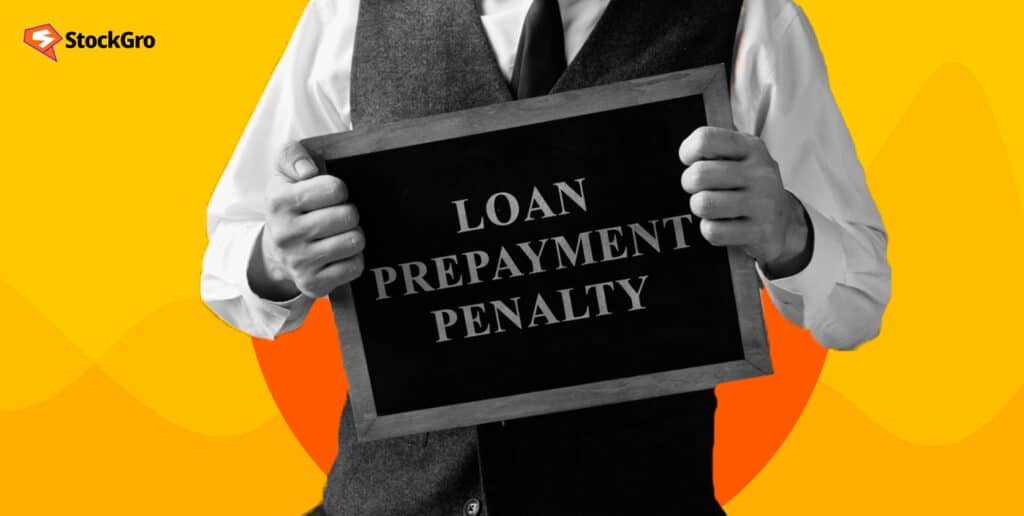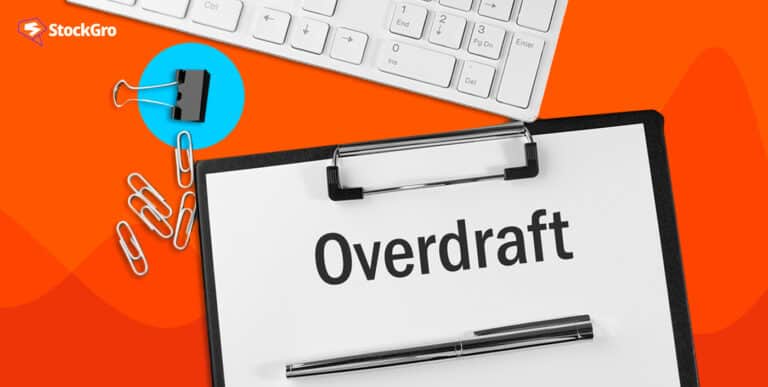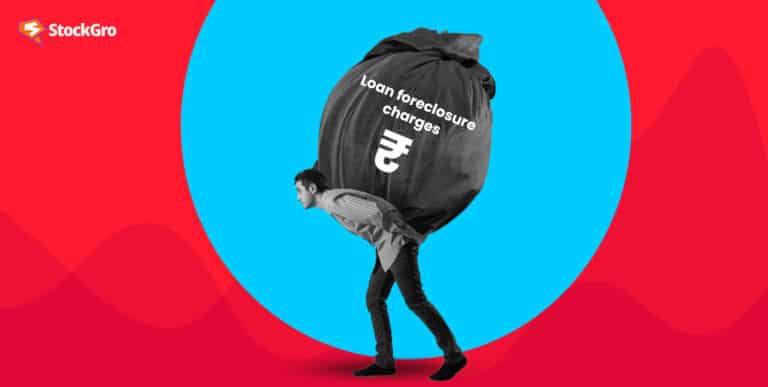
Thinking of paying off your personal loan ahead of schedule? Early loan repayment can save on interest costs, but beware of prepayment penalties. These fees, charged by lenders when you pay down or pay off debt early, can become an obstacle to your future plans.
But prepayments, on the other hand, can be a boost to your credit score in the long run and a way to get rid of the financial burden.
In today’s article, we’ll explore the potential benefits of prepaying as well as some drawbacks to be aware of. If you have a personal loan or are thinking about getting one, make sure to educate yourself on prepayment penalties.
What is a prepayment penalty on a personal loan?
There is a fee that lenders charge for paying off a portion of a personal loan ahead of time. This is known as a prepayment penalty. If you decide to pay off your loan before the term expires, you’ll be liable for a prepayment penalty.
Paying off a loan early, on the other hand, has an apparent impact on your credit score. Paying out a debt in full closes the loan account and improves your credit score. In addition, you’ll have an easier time getting loans and credit in the future with the help of this approach.
Take the case of a person who has been making their EMI payments on a personal loan for the last two years. He has now chosen to settle some of his debt. If this happens, the lender will demand a specific amount from him as a penalty. The majority of the time, a personal loan’s early payment penalty begins after a lender-imposed lock-in period.
There is usually a term of three months to a year when you have to repay the whole amount of a personal loan, as is the case with most loans. It is advisable to prepay your loan at the beginning of the loan’s duration if you are thinking about doing so.
Also read: Debt management: Advanced strategies for paying off debt quickly
How to calculate the prepayment penalty?
The calculation may vary from one contract to another based on the parties’ mutually agreed upon conditions and the no prepayment penalty clauses. If you want to understand this concept properly, you need to know certain factors. The following will help us do that.
A fixed amount of penalty: When the borrower pays off their loan early, they are required to pay a certain sum that is specified in the contract.
Based on the loan balance percentage: There are situations when the percentage of the remaining debt determines the prepayment penalty for the loan.
Investment costs: According to the contract’s terms and conditions, this might be charged regarding the interest earned each month.
Loan prepayment fee factors
One of the factors that borrowers should consider before taking a loan is the prepayment charges that lenders charge for paying off the loan before the due date. The prepayment charges may vary depending on several factors, such as the type of loan, the interest rate, the loan tenure, and the lender’s policies.
For example, some types of loans, like home loans, may have higher early payment fees than others, like personal loans, because they have more considerable funds and longer terms for paying them back.
In the same way, the prepayment fees are likely to be higher if the loan has a high-interest rate. This is because the lender would be losing more interest income if the loan was paid off early.
Prepayment fees also depend on the duration of the loan. The longer the loan term, the greater the prepayment fees are because the lender has less time to recover the cost of providing funds.
Finally, the lender’s policies may also influence the prepayment charges. This is because some lenders may charge more for paying off the loan early than others, depending on their risk appetite, market conditions, and customer relations. Therefore, borrowers should compare the prepayment charges of different loans and lenders before decision-making.
Benefits of prepayment for personal loans
Pay off your debts fast: Imagine you’re in the position of having to repay a personal debt. There will be financial repercussions if you fail to pay it. Personal loan EMIs also eat up a significant portion of your monthly income.
This is why paying off your debt in full should be your priority if you anticipate an unexpected influx of funds. You will be required to pay a small prepayment penalty. By paying off your loan early, you may escape debt and stop having your funds eaten away by EMIs.
Reduced outflow of interest: When prepaying a debt, the lock-in term is a crucial factor to think about. This is the time frame in which the borrower is not allowed to make any prepayments, either in whole or in part, to the creditor.
If you anticipate receiving more income after the lock-in period ends, you may want to consider prepaying your loan, either in whole or in part. No matter how steep the prepayment penalty is, this will help you save a tonne of money in interest.
Also read: Creating multiple streams of income
Boost your credit rating: Paying off your loan early, whether in whole or in instalments, is a great way to get out of debt quickly. Since the payment history of your loans impacts your credit score, this helps improve that score.
Reduce debt using partial prepayments:
Reduce your total loan balance and the amount of interest you’ll pay throughout the loan term by paying off a portion of it sooner. A sensible strategy, however, is to pay off your debt in full early on.
Drawbacks of prepayment for personal loans
Must pay a lump sum: Paying back a loan, even in part, may put a strain on your finances. Prepaying a loan or transferring the balance of an existing personal loan is not an easy task, especially considering the large amounts involved.
Effects on the liquidity of assets: Be careful not to deplete your liquid assets while paying off your loan. If you don’t have sufficient liquid funds, you might be in for a financial nightmare down the road.
Foreclosure fees: If you want to pay off your personal loan before its term, the lender will need you to submit the necessary paperwork and a foreclosure fee.
Also read: Impact of Inflation on Personal Finances
Conclusion
Before prepaying, understand how your lender calculates penalties and see if you can time payments to avoid fees. Also, consider whether you can afford lump-sum payments without straining your finances.
With a clear understanding of prepayment penalties, you can dodge any surprises and make smart money decisions.

